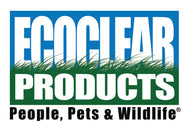Voles, often referred to as field mice or meadow mice, are small rodents that can cause significant damage to agricultural land. Their presence on a farm can lead to substantial crop loss, soil disruption, and overall economic impact. This blog explores the various ways voles affect farms and how VoleX, an eco-friendly vole control product, can help combat this problem effectively.
The Threat of Voles on Farms
Crop Damage
Voles are known for their voracious appetite for vegetation. They feed on a wide variety of plants, including grasses, seeds, tubers, and roots. This feeding behavior can result in extensive crop damage, particularly in fields of grains, vegetables, and fruits. Voles not only consume crops but also gnaw on the bark of young trees and shrubs, which can kill or severely weaken them.
Soil Disruption
Voles create elaborate burrow systems in the soil, which can disrupt the root systems of plants. These tunnels can undermine the stability of crops, leading to poor growth or collapse. Additionally, the burrowing activity of voles can cause soil erosion, further affecting the health and productivity of farmland.
Reproductive Rate
One of the most challenging aspects of vole infestations is their high reproductive rate. Voles can breed throughout the year, and a single female can produce multiple litters annually, each containing several offspring. This rapid reproduction can lead to explosive population growth, making it difficult to control vole infestations once they become established.
Economic Impact
The economic impact of voles on farms can be significant. Crop loss due to vole damage translates to reduced yields and lower income for farmers. Additionally, the cost of repairing vole-induced damage, such as replanting crops or stabilizing soil, can be substantial. In severe cases, the presence of voles can render certain areas of farmland unusable until the infestation is controlled.
Traditional Vole Control Methods
Trapping
Trapping is a common method for controlling vole populations. However, it can be labor-intensive and time-consuming, especially on large farms. Traps must be checked and reset regularly, and the effectiveness of trapping can vary depending on the density of the vole population.
Poison Baits
Poison baits are another traditional method for vole control. While they can be effective, there are significant drawbacks. Many poisons pose risks to non-target animals, including pets and wildlife. Additionally, the use of toxic substances raises environmental concerns and can lead to secondary poisoning of predators that consume poisoned voles.
Habitat Modification
Habitat modification involves altering the environment to make it less conducive to voles. This can include practices such as reducing ground cover, mowing vegetation, and removing debris. While habitat modification can help reduce vole populations, it is often not sufficient as a standalone control method and may not be feasible for all farming operations.
Introducing VoleX: A Safe and Effective Solution
VoleX offers a modern, eco-friendly alternative to traditional vole control methods. Developed by EcoClear Products, VoleX is a non-toxic bait that effectively targets voles without posing risks to non-target animals or the environment.
How VoleX Works
VoleX is formulated with a blend of natural ingredients that attract voles. Once consumed, VoleX disrupts the vole’s digestive system, leading to dehydration and eventual death. Importantly, VoleX is not toxic to pets, livestock, or wildlife, making it a safe option for use on farms.
Benefits of Using VoleX
1. Eco-Friendly: VoleX is biodegradable and does not contain harmful chemicals, making it an environmentally responsible choice for vole control.
2. Safe for Non-Target Animals: Unlike traditional poisons, VoleX poses no risk to pets, livestock, or wildlife. This makes it an ideal solution for farms where non-target animal safety is a priority.
3. Easy to Use: VoleX can be applied directly to vole burrows and runways, ensuring targeted delivery. Its effectiveness is not influenced by weather conditions, providing reliable control throughout the year.
4. Cost-Effective: By preventing crop damage and soil disruption, VoleX helps farmers protect their investments and maintain productivity. The cost savings from reduced crop loss and damage repair can be significant.
Implementing VoleX on Your Farm
Assessment and Monitoring
Before implementing VoleX, it’s essential to assess the extent of the vole infestation. Look for signs of vole activity, such as burrow entrances, runways, and gnaw marks on plants. Monitoring vole populations can help determine the most effective placement and quantity of VoleX.
Application Strategy
Apply VoleX directly to vole burrows and active runways. For larger infestations, multiple applications may be necessary to achieve desired results. Regular monitoring and reapplication as needed can help maintain control over the vole population.
Integrated Pest Management
For best results, consider incorporating VoleX into an integrated pest management (IPM) strategy. This may include habitat modification, exclusion techniques, and the use of natural predators to help keep vole populations in check. An IPM approach can enhance the effectiveness of VoleX and provide long-term control.
Conclusion
Voles pose a significant threat to agricultural land, causing crop damage, soil disruption, and economic loss. Traditional control methods often fall short due to their labor-intensive nature, environmental risks, and limited effectiveness. VoleX offers a safe, eco-friendly, and effective solution for managing vole populations on farms.
By choosing VoleX, farmers and landowners can protect their crops, maintain soil health, and safeguard their livelihoods. Implementing VoleX as part of a comprehensive vole control strategy ensures sustainable and responsible pest management, promoting the long-term productivity and profitability of agricultural land.
Visit EcoClear Products to learn more about VoleX and how it can help you combat vole infestations on your farm.



